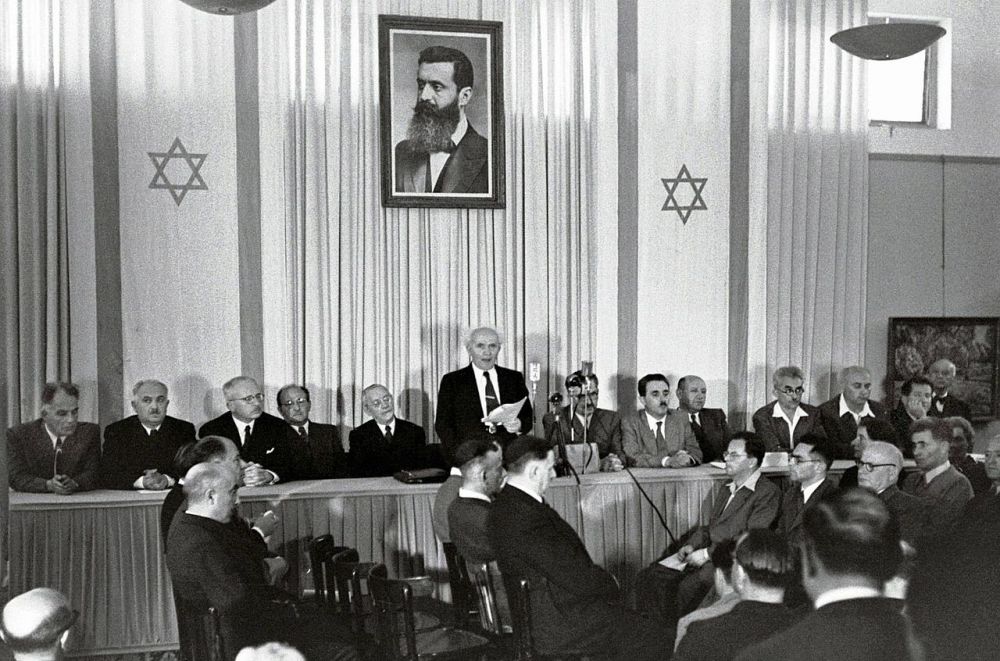
 Klotz Józef
Klotz Józef
Wirtualny Sztetl
JÓZEF KLOTZ – DANE OSOBOWE
Klotz Józef (02.01.1900, Kraków – 1941, Warszawa) – piłkarz, zawodnik reprezentacji Polski. 28 maja 1922 r. strzelił w meczu ze Szwecją pierwszego w dziejach gola dla kadry biało-czerwonych, a Polska wygrała swój pierwszy mecz piłkarski (2:1).
Pochodził z Krakowa, z wielodzietnej rodziny żydowskiego krawca Judy Markusa Klotza (Ignacego, 13.05.1874, Jasło – ok. 1942, Strzyżów?, ofiara Zagłady) i Salomei (Szajndli) z domu Glasner (08.12.1880, Podgórze – 1941, Podgórze). Formalnie był dzieckiem przedmałżeńskim, pierwotnie zanotowanym jako Józef Glasner; rodzice wzięli ślub 9 września 1903 r. w Krakowie. Warsztat rodzinny znajdował się najpierw przy ul. Grodzkiej, potem przy ul. Brackiej 6 i ul. Św. Filipa 6. Miał czterech braci: Janka (Jakuba, Szaje) (02.1901 albo 02.1902, Kraków – 1936, Wiedeń), Izaaka (24.02.1905, Ludwinów – 21.06.1905, Ludwinów), Stanisława (Salomona, Szlomo, Semka) (18.04.1906, Podgórze – …), Mańka (Moszego) (11.05.1909, Kraków – ok. 1994, Tel Awiw), a także siostrę Ganię (Jetti) (05.04.1903, Kraków – 1955, Izrael), pielęgniarkę, noszącą później po mężu Maurycym (Moszem), nazwisko Błońska. Moszemu Klotzowi i Gani Błońskiej udało się w 1942 r. dostać przez Teheran do Palestyny. Rodzina była silnie związana z ruchem bundowskim.
Sport zaczął uprawiać w nowo założonym klubie Jutrzenka Kraków, mając zaledwie 11 lat. Jutrzenka (jid. Morgensztern) była klubem żydowskim, założonym przez członków Żydowskiej Partii Socjalno-Demokratycznej, od 1920 r. połączonej z Bundem. W czasie kariery sportowej był dobrze zbudowanym wysokim młodzieńcem, mierzącym 185 cm przy 75 kg wagi. W życiu codziennym określano go jako eleganckiego i przystojnego mężczyznę. Na boisku idealnie pasował do roli obrońcy; na tej pozycji występował przez całą karierę. Warto podkreślić, że także dwaj bracia Józefa, Janek i Stanisław, zajmowali się sportem. Utalentowany był zwłaszcza Janek, znany ze swojej szybkości; m.in. przebiegł 100 m w 11,2 sekundy.
W rozwoju sportowym przeszkodziła mu I wojna światowa. W marcu 1918 r. został wcielony do 57. pułku piechoty armii austriackiej. Gdy w listopadzie Polska odzyskiwała niepodległość, Klotz wstąpił do 6. pułku piechoty Wojska Polskiego. Walczył na Kresach. Wiosną 1920 r. dostał przydział do baonu sanitarnego. Z wojska powrócił w listopadzie 1920 r. a 24 grudnia razem z bratem Jankiem zapisał się na semestr zimowy prawa na Uniwersytecie Jagiellońskim. Studiował, z półtoraroczną przerwą do końca roku akademickiego 1921/22. Studiów nie skończył.
W 1921 r., wraz z młodszymi braćmi Janem i Stanisławem, znów grał w barwach Jutrzenki, będąc podporą zespołu. Dostrzeżono go, ale w pierwszym historycznym występie reprezentacji Polski nie zagrał. Mecz ten, rozegrany 18 grudnia 1921 r., Polska przegrała z Węgrami 0:1. W następnym spotkaniu kadry Klotza już nie zabrakło. Jego debiut w reprezentacji (14.05.1922 roku z Węgrami w Krakowie) nie należał do udanych. Jedna z gazet (lwowski „Sport”) napisała, że zwłaszcza do przerwy grał słabo: „dał się objeżdżać rywalom i był stremowany”. Polska przegrała 0:3, ale dodajmy, że drużyna węgierska należała do najlepszych w Europie.
W drugim występie strzelił dla biało-czerwonych pierwszego gola w historii reprezentacji narodowej. Stało się to w Sztokholmie, 28 maja 1922 r. w 27. minucie meczu ze Szwecją, wygranego przez Polskę 2:1. Po zagraniu ręką szwedzkiego obrońcy sędzia podyktował rzut karny. Jak pisał „Przegląd Sportowy”:
Jedynym graczem, który w swej drużynie bije jedenastki z dobrym skutkiem, był Józef Klotz. […] Klotz z całym spokojem, bez rozpędu pakuje piłkę w lewy róg, pod poprzeczkę. Bramkarz ani drgnął.
Polska objęła prowadzenie. Szwedzka prasa „Dagbladet”, opisując pierwszego dla Polaków, historycznego gola, podkreślała, że Klotz zrobił to z niesłychaną elegancją.
13 września 1924 r. Józef Klotz zawarł w Krakowie związek małżeński. Jego żoną została Regina Witkowska, urodzona we Włocławku, córka Eliasza Witkowskiego i Prywy z domu Cymrynk.
Strzelec pierwszego gola dla Polski pozostał wierny Jutrzence do wiosny 1925 roku. W 1925 r. przeniósł się z powodów rodzinnych na stałe do Warszawy, gdzie zasilił stołeczne B-klasowe Makabi. Jego młodsi bracia mieli mu za złe, że przechodząc z Jutrzenki Kraków do syjonistycznego Makabi, zdradził ideały socjalistyczne.
W stolicy Klotz zakończył karierę piłkarską już w następnym roku. U schyłku drogi sportowej prezentował się niewesoło, czego dowodzi krótki artykuł w „Trybunie Polskiej” z 7 maja 1925 r., o znamiennym tytule Kloc pod nogi – tamuje drogi: „Gdy brak narybku [wychowanków Makabi] sprowadza się graczy z innych klubów. Przyjechał więc Klotz, były reprezentacyjny gracz polski z krakowskiej Jutrzenki. Liczono na to, że będzie on zaporą, na której potknie się atak każdej drużyny. Tymczasem Klotz dziś już nie jest tym samym Klotzem, co przed dwoma laty. Nawet atak Varsovii, ostatnio źle usposobiony, uporał się z nim i strzelił aż 7 bram. Import nie popłaca!”
Mieszkał w Warszawie wraz z żoną aż do wybuchu wojny. Jego adresy to m. in. ul. Chmielna 44 i ul. Widok 20. O jego zajęciach w tych latach bardzo trudno zdobyć jakiekolwiek informacje, ale zachował się… list gończy, noszący sygnaturę 23311-IV-30, w którym Sąd Okręgowy w Warszawie, wydział III karny, na mocy decyzji z 12.06.1930 r. poszukuje Józefa Klotza, urodzonego w 1900 r. w Krakowie („urzędnik, wzrost średni, twarz pociągła, brunet, oczy czarne”), oskarżonego z art. 574, cz. II kodeksu karnego. Ponieważ rzecz dzieje się jeszcze przed 1932 r., w którym wprowadzono tzw. kodeks Makarewicza, chodzi zapewne o „odziedziczony” po zaborcy rosyjskim kodeks Tagancewa z 1903 roku. Artykuł 574 tego kodeksu dotyczy przywłaszczenia powierzonego sobie cudzego mienia ruchomego.
W połowie lat 30. przyszła na świat jego córka. Zgodnie z relacją rodziny, Klotz stracił z nią kontakt w czasie wojny; podobno przeżyła, a po wojnie miała mieszkać w Polsce, tak samo jak jej potomkowie.
W 1940 r. został uwięziony w getcie. Później znalazł się jednak chyba po stronie „aryjskiej”, gdyż aresztowany przez Niemców, zginął rozstrzelany w ruinach kamienicy przy Nowym Świecie w 1941 roku. Zgodnie z relacją rodzinną, został przez kogoś zadenuncjowany, a jego pochodzenie mordercy sprawdzili nakazując mu opuszczenie spodni. Warto zauważyć, że inskrypcja na grobie Klotzów wymienia Józefa w grupie „Zginęli śmiercią męczeńską w latach 1942–1945”.
Zagładę przeżył Jurek (Jerzy), syn Janka Klotza i Amalii (Mali) z domu Porańskiej. Mieszkał w okresie powojennym w Wiedniu i w Polsce, pod innym nazwiskiem. Zginął natomiast drugi syn tej pary, Stefan Klotz (ur. 1928). Potomkowie Stanisława Klotza mieszkają w Izraelu. Grób rodzinny Klotzów znajduje się na cmentarzu żydowskim przy ul. Miodowej w Krakowie; jest tam też symboliczne miejsce pochówku pierwszego zdobywcy gola dla Polski – Józefa Klotza.
Za pomoc w przygotowaniu artykułu bardzo dziękujemy p. Dannemu Dekelowi, krewnemu Józefa Klotza, mieszkającemu w Izraelu. Wykorzystaliśmy też fragmenty wcześniejszego biogramu autorstwa p. Roberta Gawkowskiego. Wiele informacji genealogicznych i adresowych zawdzięczamy Centrum Informacji Historycznej Muzeum Historii Żydów Polskich POLIN.
Zawartość publikowanych artykułów i materiałów nie reprezentuje poglądów ani opinii Reunion’68,
ani też webmastera Blogu Reunion’68, chyba ze jest to wyraźnie zaznaczone.
Twoje uwagi, linki, własne artykuły lub wiadomości prześlij na adres:
webmaster@reunion68.com




